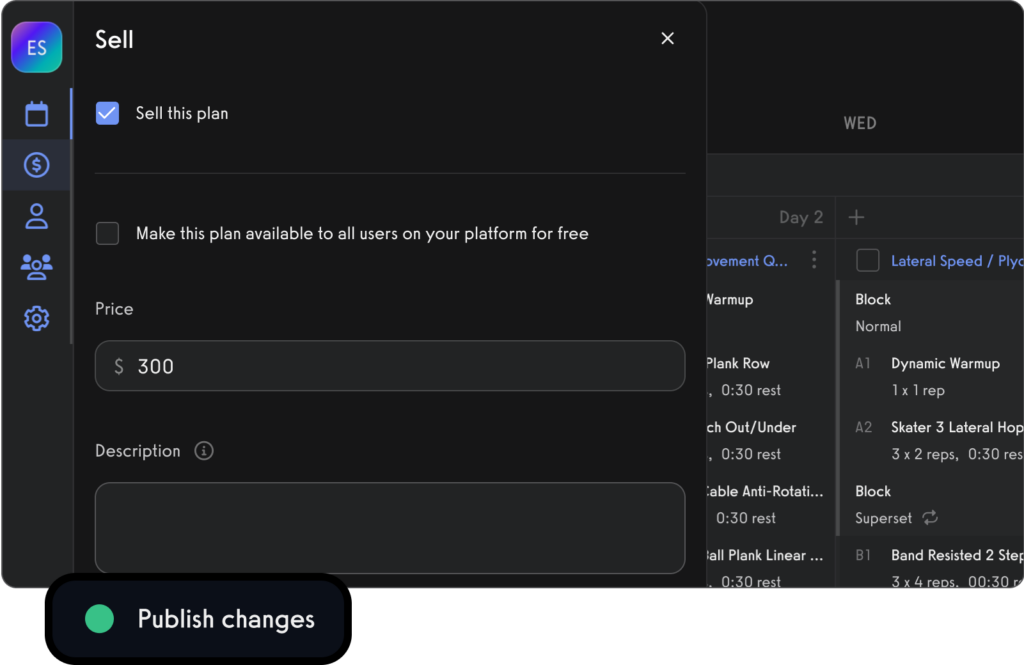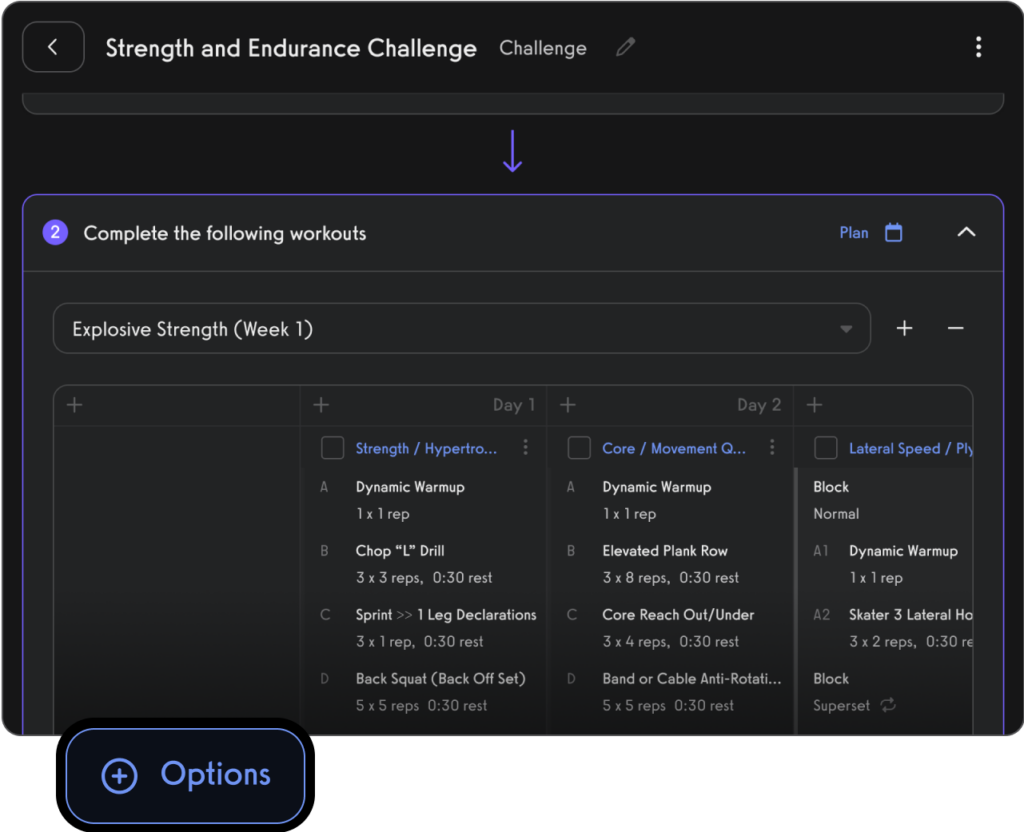ACSM Certified Exercise Physiologist (EP-C) Certification Review (2025)
Read this ACSM Certified Exercise Physiologist (EP-C) Certification Review to decide if the ACSM EP-C Certification is worth it and what the best personal training certification is for you.

Finding the best personal training certifications and the best exercise physiologist certifications play a crucial role in establishing expertise and credibility. One such certification is the ACSM Certified Exercise Physiologist (EP-C) Certification. This comprehensive ACSM-EP review aims to provide a detailed overview of the ACSM EP-C Certification, covering key aspects such as its importance, educational prerequisites, exam structure, study resources, job opportunities, and more.
Get an in-depth review of the ACSM Certified Exercise Physiologist (EP-C) certification. Whether you want to learn how to become a personal trainer, or learn how to become a fitness influencer, or learn how to open a gym, or learn how to start a fitness business, or anything in between, use the Exercise.com platform to accomplish your fitness business goals.

You can start an online personal training business, make a fitness app, learn how to make money selling workout plans online, put in-person personal training marketing ideas into action, use personal training income ideas to find personal trainer career options that will put you on track for the highest paying fitness jobs, and many other ways to make money from fitness doing what you love.
With the Exercise.com platform you have the best online fitness coaching software and the best software for fitness influencers all in one! (Not to mention the best gym software and the best personal training software).
Create workout plans.

Manage clients.


Run online fitness challenges.

Create and sell fitness memberships, products, and digital offers.

Manage, message, and market to your online personal training clients and leads.

All from your very own custom branded fitness apps.


Introduction to the ACSM Certified Exercise Physiologist (EP-C) Certification
Before diving into the specifics, let’s understand what the ACSM EP-C Certification entails. The EP-C Certification is granted by the American College of Sports Medicine (ACSM) and verifies an individual’s proficiency in exercise physiology and related areas.
The ACSM EP-C Certification is designed for exercise professionals who hold at least a bachelor’s degree in exercise science, kinesiology, or a related field. It focuses on evaluating and enhancing an individual’s skills in the scientific aspects of exercise assessment, prescription, and supervision.
Importance and Benefits of the ACSM EP-C Certification
Becoming a Certified Exercise Physiologist (EP-C) through ACSM offers numerous advantages. Firstly, it enhances your professional credibility and distinguishes you as a qualified expert in the field. Employers, clients, and fellow professionals recognize the ACSM EP-C Certification as a mark of excellence and trust.
Additionally, holding the ACSM EP-C Certification opens doors to a wide range of career opportunities. EP-Cs are qualified to work in a variety of settings, including commercial gyms, corporate wellness programs, hospital-based fitness centers, and sports performance facilities.
Moreover, EP-Cs have the opportunity to make a positive impact on individuals’ lives by helping them improve their health, manage chronic conditions, and achieve their fitness goals through evidence-based exercise programs.
Educational Background and Prerequisites
Prior to pursuing the ACSM EP-C Certification, applicants must fulfill specific educational prerequisites. These requirements include a minimum of a bachelor’s degree in exercise science, kinesiology, or a closely related field from an accredited institution.
Furthermore, prospective EP-Cs must have completed coursework in areas such as exercise physiology, anatomy, biology, and exercise prescription. These foundational courses contribute to a solid knowledge base and ensure that candidates possess the necessary understanding of human physiology and exercise principles.
In addition to formal education, work experience in the field of exercise science is highly recommended. Exposure to practical exercises, fitness assessments, and coaching individuals can significantly augment an individual’s preparation for the ACSM EP-C Certification.
Experience and Practical Requirements
Apart from the educational prerequisites, the ACSM EP-C Certification also includes experiential requirements. Candidates are required to accumulate a specific number of hours of hands-on experience working with clients or participants in an exercise-related capacity. These practical requirements are integral to developing the necessary practical skills to be an effective exercise physiologist.
The practical experience can be gained through internships, supervised practicums, or employment in fitness centers, sports teams, or clinical settings. These opportunities provide invaluable exposure to real-life scenarios and enable candidates to refine their ability to assess, design, and implement exercise programs specific to individual needs.
CPR and AED Certification
In order to be eligible for the ACSM EP-C Certification, candidates must also hold a valid CPR (Cardiopulmonary Resuscitation) and AED (Automated External Defibrillator) certification. This requirement ensures that EP-Cs are equipped with the knowledge and skills to respond to cardiovascular emergencies and provide immediate care when needed.
Overview of the ACSM EP-C Certification Exam
The ACSM EP-C Certification Exam is a comprehensive assessment that evaluates an individual’s theoretical understanding of exercise physiology and related topics. The exam consists of multiple-choice questions that cover various content areas, including exercise prescription, anatomy, physiology, nutrition, and client consultation.
It is important to note that the ACSM EP-C Certification Exam is computer-based and available at designated testing centers. The duration of the exam is three hours, during which candidates are expected to provide accurate and well-reasoned responses to the questions presented. The passing score for the examination is determined by a set standard, ensuring that successful candidates meet the necessary competency level.
Key Topics and Content Areas Covered in the Exam
The ACSM EP-C Certification Exam covers a wide range of topics to assess an individual’s comprehensive understanding of exercise physiology. Some of the key content areas include:
- Exercise assessment and prescription
- Cardiovascular and respiratory physiology
- Musculoskeletal anatomy and physiology
- Exercise metabolism and bioenergetics
- Principles of exercise testing and interpretation
- Exercise training adaptations and periodization
- Exercise psychology and behavior change
- Nutrition and weight management
These topics encompass the foundational knowledge required to excel as an exercise physiologist and demonstrate proficiency in various aspects of exercise science.
ACSM EP-C Exam Format and Structure
The ACSM EP-C Certification Exam follows a multiple-choice format, where candidates are presented with a question followed by multiple response options. It is essential for candidates to not only possess factual knowledge but also the ability to apply that knowledge to practical scenarios.
The structure of the exam emphasizes critical thinking and problem-solving skills. Candidates must analyze given information, consider different factors, and select the most appropriate response. This approach ensures that the EP-Cs possess the ability to make informed decisions and customize exercise programs based on individual needs and circumstances.
The exam consists of a varying number of questions. While the exact number may differ, candidates can expect to encounter approximately 150 questions in total.
Choosing between ACSM Certified Exercise Physiologist (EP-C) and other certifications depends on your focus in health fitness and exercise prescription. ACSM’s reputation in exercise science makes its EP-C certification highly sought after for those specializing in exercise physiology.
The ACSM Certified Exercise Physiologist (EP-C) is a professional level certification designed for individuals who wish to specialize in developing and implementing physical activity and fitness programs for individuals and groups.
ACSM EP-C General Information
The EP-C certification is recognized for its focus on using exercise to improve health, fitness, and performance, making it ideal for those working in wellness programs, fitness facilities, and health promotion.
ACSM Credibility and Reputation
The American College of Sports Medicine (ACSM) is renowned for its contributions to sports medicine and exercise science, making its EP-C certification highly credible and respected in the fitness industry.
For professionals aiming to work in clinical settings or with clients who have chronic diseases, the ACSM EP-C certification offers the necessary knowledge and skills to design effective exercise programs based on current scientific evidence.
ACSM EP-C vs Other Top Exercise Physiology Certifications
When compared to other certifications, ACSM EP-C stands out for its emphasis on exercise prescription and the role of exercise in preventing and managing chronic diseases.
Exclusive PTP ACSM Offers
Utilizing the best personal training software in conjunction with the ACSM EP-C certification allows exercise physiologists to efficiently manage their clients and tailor exercise programs to individual needs, enhancing client outcomes.
Who is the ACSM EP-C Certification Meant For?
The ACSM EP-C certification is intended for exercise professionals with a strong background in exercise science who are seeking to advance their career in exercise physiology and work with a diverse clientele, including those with chronic health conditions.
ACSM EP-C Cost
Investing in the ACSM EP-C certification involves costs associated with study materials, exam fees, and potential workshops or additional coursework.
Comprehensive Study Materials
ACSM provides a range of study materials, including textbooks, online courses, and workshops, to prepare candidates for the EP-C exam, covering topics such as exercise testing, program design, and health assessment.
ACSM EP-C Content
The EP-C certification covers a broad spectrum of knowledge, including exercise physiology, biomechanics, behavioral science, and nutrition, equipping professionals to work in various settings.
Advanced Exercise Prescription and Program Design
- Detailed understanding of how to develop exercise programs tailored to individual health status, fitness levels, and goals.
Specialized Knowledge for Working with Clinical Populations
- Skills and knowledge to safely and effectively work with clients with chronic diseases, such as heart disease, diabetes, and obesity.
ACSM EP-C Exam Prep and Study Materials
ACSM offers a variety of exam prep resources, including self-study materials, online courses, and live workshops, to ensure candidates are well-prepared for the EP-C exam.
ACSM EP-C Certification Requirements
Candidates must meet specific academic and professional prerequisites before sitting for the EP-C exam, including a bachelor’s degree in exercise science or a related field.
ACSM EP-C Salary
Holding an ACSM EP-C certification can lead to higher earning potential, particularly in clinical, corporate wellness, and specialized fitness settings.
Taking the Final ACSM EP-C Exam
The EP-C exam tests candidates’ knowledge and skills in exercise physiology, risk stratification, exercise prescription, and program administration.
ACSM Continuing Education and Recertification
To maintain the EP-C certification, professionals are required to complete continuing education credits, ensuring they stay up-to-date with the latest research and best practices in exercise physiology.
Other ACSM Offerings
Beyond the EP-C certification, ACSM offers a range of certifications and specializations, including Clinical Exercise Physiologist (CEP) and Certified Personal Trainer (CPT), catering to various career paths in the fitness industry.
ACSM EP-C Overall Rating
Pros
- Comprehensive coverage of exercise physiology and prescription
- High credibility and recognition within the fitness and health industry
- Opportunities for career advancement in clinical and wellness settings
Cons
- Higher cost and academic requirements compared to some other certifications
- May require additional study and preparation due to the breadth of content covered
The ACSM Certified Exercise Physiologist (EP-C) certification is an excellent choice for individuals looking to specialize in exercise prescription and work with a wide range of clients, including those with chronic health conditions. By integrating Exercise.com’s best personal training software, EP-C certified professionals can further
Recommended Study Resources and Materials
Preparing for the ACSM EP-C Certification Exam requires a systematic and thorough approach. To maximize your chances of success, it is important to utilize reliable study resources and materials specifically tailored to the content covered in the exam.
ACSM provides official study materials, including textbooks, online courses, and practice exams. These resources are designed to align with the exam’s content areas and facilitate comprehensive exam preparation. Additionally, external publishing houses also offer study guides and supplemental resources that can enhance your understanding and retention of key concepts.
While it is beneficial to utilize a variety of study materials, it is crucial to prioritize resources that align most closely with the ACSM EP-C Certification exam specifications and content outline. Focusing on the most relevant and up-to-date resources ensures you are well-equipped to tackle the exam.
Creating a Study Plan and Schedule
Formulating an effective study plan is essential for optimizing your exam preparation. A well-structured plan allows you to allocate adequate time for studying each content area and ensures that you cover all the necessary topics in a systematic manner.
When creating your study plan, consider factors such as your current level of knowledge, available time, and preferred learning style. Divide your study time based on the importance and complexity of each content area. Allocate more time to challenging topics and review previously covered material periodically to reinforce your understanding.
Creating a study schedule also provides accountability and helps you remain organized throughout the preparation process. Establish realistic goals and milestones, and strive to adhere to the outlined schedule. Consistency in studying is key to long-term retention and overall success on the exam.
Practice Questions and Mock Exams
Supplementing your study materials with practice questions and mock exams is an integral component of effective exam preparation. These resources offer the opportunity to familiarize yourself with the exam’s format, assess your knowledge, and identify areas that require further focus.
ACSM provides official practice exams that closely resemble the format and difficulty level of the actual ACSM EP-C Certification Exam. Taking these practice exams under simulated test conditions allows you to gauge your level of preparedness and identify any areas that may require additional attention.
Incorporate review of practice questions into your study plan, and use the feedback provided to address any knowledge gaps. By exposing yourself to a variety of practice questions, you develop the ability to approach unfamiliar scenarios with confidence and accuracy.
Test-Taking Strategies and Techniques
Approaching the ACSM EP-C Certification Exam strategically can significantly enhance your performance. Being aware of effective test-taking strategies allows you to navigate the exam more efficiently and ensures that you can recall and apply your knowledge effectively.
Prioritize questions based on difficulty: Start with questions that you find easier to grasp and answer. This approach boosts your confidence and enables you to accumulate points early on.
Manage your time: Read through the questions carefully, but avoid spending an excessive amount of time on any single question. Allocate your time based on the number of questions and remain mindful of the suggested completion pace.
Eliminate incorrect options: Use the process of elimination to narrow down your options when unsure of the correct response. Cross out choices that are clearly incorrect and focus on selecting from the remaining options.
Review answers: With any remaining time, review your answers for accuracy and clarity. Pay attention to questions that you may have answered hastily and reconsider your responses if necessary.
Time Management during the Exam
Time management is crucial during the ACSM EP-C Certification Exam. It is essential to approach each question efficiently without compromising accuracy or quality of response.
Consider the time available and the number of questions to gauge the adequate pace for answering each question. Prioritize accuracy, but be mindful of spending too long on any single question. If you encounter a challenging question, consider temporarily moving on and returning to it later when you have more clarity or time available.
ACSM recommends monitoring your progress throughout the exam. This ensures that you are mindful of time constraints and can make adjustments if needed. Remaining mindful of time also prevents you from rushing through questions toward the end of the exam, reducing the risk of careless errors.
Common Mistakes to Avoid
There are some common mistakes that candidates often make when preparing for the ACSM EP-C Certification Exam. Becoming aware of these potential pitfalls and taking measures to avoid them can enhance your chances of success.
One common mistake is underestimating the exam’s content and complexity. It is important to thoroughly review all the content areas and ensure you are well-versed in each topic. This includes dedicating adequate time to less familiar areas.
Another common mistake is relying solely on memorization without also understanding the underlying principles. The ACSM EP-C Certification Exam emphasizes the application of knowledge rather than mere regurgitation of facts. Focus on comprehension and integration of concepts to best meet the exam’s requirements.
Additionally, procrastination and inadequate time management can severely impact preparation. Start your exam preparation early, allowing for ample time to study all the relevant topics and undertake comprehensive review sessions. Avoiding last-minute cramming ensures better retention of information and decreases test anxiety.
Continuing Education Requirements
Upon successfully passing the ACSM EP-C Certification Exam and obtaining the ACSM EP-C Certification, professionals must engage in continuing education to maintain and enhance their knowledge and skills. Continuing education ensures that EP-Cs stay updated with the latest scientific advancements and evidence-based practices.
ACSM requires EP-Cs to accumulate a specific number of continuing education credits within each certification period. These credits can be earned through various activities, such as attending conferences, completing online courses, participating in workshops, and publishing related articles.
By actively engaging in continuing education, EP-Cs proactively enhance their professional development and demonstrate ongoing commitment to staying abreast of industry advancements.
Renewal Process and Deadlines
To maintain active ACSM EP-C Certification, professionals must renew their certification periodically. The certification renewal process typically occurs every three years and involves meeting specific requirements set by ACSM.
During the renewal process, EP-Cs must provide evidence of continuing education credits earned during the certification period. The exact number of credits required and other specific requirements may vary. It is crucial to stay updated with ACSM guidelines to ensure compliance with the renewal process and deadlines.
Benefits of Maintaining Active Certification
Maintaining an active ACSM EP-C Certification offers numerous benefits for exercise physiologists. Active certification indicates a commitment to professional growth, ongoing education, and continuous improvement.
Being an active EP-C demonstrates to employers, clients, and fellow professionals that you possess the latest knowledge and expertise in exercise physiology. It enhances your employability and strengthens your position in the rapidly advancing field of exercise science.
Active certification also provides access to exclusive resources, research publications, and networking opportunities within the ACSM community. Engaging with fellow professionals and staying connected to industry advancements promotes collaboration, learning, and potential career growth.
Job Roles and Settings for ACSM EP-C Certified Professionals
The ACSM EP-C Certification opens the door to various job roles and settings for exercise physiologists. EP-Cs are qualified to work in diverse environments, including:
- Commercial fitness centers and gyms
- Corporate wellness programs
- Hospital-based fitness centers
- Cardiopulmonary rehabilitation facilities
- Sports performance centers
- Research institutions
- Colleges and universities
- Personal training studios
These opportunities allow EP-Cs to work with clients and individuals across the lifespan, ranging from those seeking to improve general fitness to individuals with chronic diseases or specific performance goals.
Salary Potential and Market Demand
The demand for exercise physiologists, including those holding the ACSM EP-C Certification, continues to grow. As individuals prioritize their health and well-being, there is an increasing demand for professionals who can provide expert guidance and support in achieving fitness goals.
The salary potential for ACSM EP-C certified professionals can vary based on factors such as geographical location, level of experience, and job setting. According to the Bureau of Labor Statistics, the median annual wage for exercise physiologists was $49,090.
While salary figures may vary, the strong market demand and the unique skill set possessed by EP-Cs contribute to the potential for rewarding and fulfilling career opportunities.

Is the ACSM Certified Exercise Physiologist (EP-C) Certification worth it?
The ACSM (American College of Sports Medicine) Certified Exercise Physiologist (EP-C) Certification is highly valuable for those looking to specialize in exercise prescription and fitness assessment for healthy individuals and those with medically controlled diseases. Given ACSM’s reputation as a leader in sports medicine and exercise science, this certification is particularly beneficial for professionals aiming to work in clinical settings, wellness programs, and health promotion. It’s a worthwhile investment for those dedicated to advancing their career in exercise physiology and applying evidence-based practices to improve health outcomes.
How difficult is the ACSM EP-C Certification exam?
The ACSM EP-C Certification exam is considered challenging due to its comprehensive coverage of exercise physiology, including assessments, exercise prescription, and program design for both healthy individuals and those with chronic diseases. A strong foundation in exercise science, along with thorough preparation using ACSM’s resources, is essential for success on the exam.
How credible is the ACSM’s EP-C Certification?
The ACSM’s EP-C Certification is highly credible within the health and fitness industry, particularly in clinical and wellness settings. ACSM is recognized globally for its contributions to sports medicine and exercise science research, making its certifications, including the EP-C, respected benchmarks for knowledge and competency in exercise physiology.
How many people pass the ACSM EP-C Certification exam on the first try?
Specific pass rate statistics for the ACSM EP-C Certification exam on the first attempt are not publicly disclosed by ACSM. However, the certification’s rigorous standards suggest that thorough study and practical experience in exercise science are crucial for a good chance of passing the exam.
What is the pass rate of the ACSM EP-C Certification?
The exact pass rate for the ACSM EP-C Certification exam is not published by ACSM. The certification is known for its high standards and comprehensive examination of exercise physiology principles, underscoring the importance of in-depth preparation and understanding of the subject matter.
How does the ACSM’s EP-C Certification compare to other exercise physiology certifications?
The ACSM’s EP-C Certification is distinguished by its focus on applying exercise science in clinical and health promotion settings, making it unique compared to more general personal training certifications. Compared to other exercise physiology certifications, the EP-C is particularly noted for its rigorous standards and its alignment with ACSM’s leading role in sports medicine and exercise science research.
Is the ACSM EP-C Certification test open book?
The ACSM EP-C Certification exam is not open book. It is a proctored test that evaluates the candidate’s knowledge and application of exercise physiology principles and practices without the use of reference materials or external aids.
How many times can you fail the ACSM EP-C Certification exam?
ACSM allows candidates to retake the EP-C Certification exam if they do not pass, but a retake fee applies. The specific policy regarding the number of retakes, fees, and any waiting periods between attempts should be confirmed directly with ACSM.
What can I do with an ACSM EP-C Certification?
With an ACSM EP-C Certification, you can work in various settings such as hospitals, wellness centers, corporate fitness programs, and rehabilitation clinics. The certification equips you to conduct fitness assessments, develop and implement exercise programs for health promotion and disease management, and collaborate with healthcare professionals to support patients’ health and wellness goals.
How expensive is the ACSM EP-C Certification?
The cost of the ACSM EP-C Certification varies based on ACSM membership status, registration fees, and any additional study materials or workshops chosen. Typically, the exam fee ranges from approximately $279 to $349 for ACSM members, with non-members paying a higher fee. Additional costs for study materials and preparation courses may apply.
What happens if you don’t pay ACSM for the EP-C Certification?
Non-payment for the ACSM EP-C Certification could result in the inability to access study materials, schedule the exam, or receive the certification. It’s crucial to meet all financial obligations to ACSM to complete the certification process successfully.
How long is the ACSM EP-C Certification good for?
The ACSM EP-C Certification is valid for three years. Certified individuals must earn a specific number of Continuing Education Credits (CECs) and pay a recertification fee before the end of each three-year cycle to maintain their certification and stay current with the latest practices in exercise physiology.
How can I learn more about exercise physiology?
To learn more about exercise physiology, consider pursuing further education in the field, such as a degree program or specialized courses, attending professional workshops and conferences, engaging in continuing education opportunities provided by organizations like ACSM, and staying updated on the latest research in sports medicine and exercise science.
How can I integrate exercise physiology principles into my practice?
Integrating exercise physiology principles into your practice involves conducting thorough health and fitness assessments, designing evidence-based exercise programs tailored to individual needs, staying informed about the latest research in exercise science, and continuously evaluating and adjusting programs based on client progress and outcomes.
How can Exercise.com help me run a successful exercise physiology-focused business?
Exercise.com can help run a successful exercise physiology-focused business by providing comprehensive business management software tailored for fitness and health professionals. The platform includes features for creating personalized exercise programs, managing client and group sessions, conducting online consultations and training, tracking client progress, and automating various business tasks, enabling you to efficiently manage your practice and deliver high-quality, evidence-based exercise physiology services to your clients.











